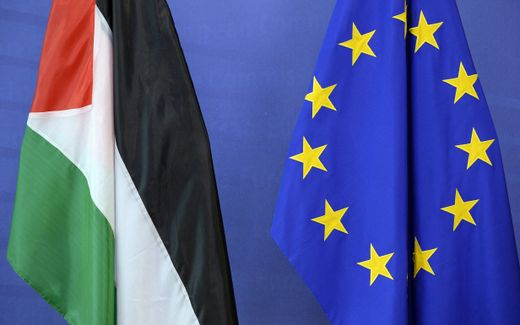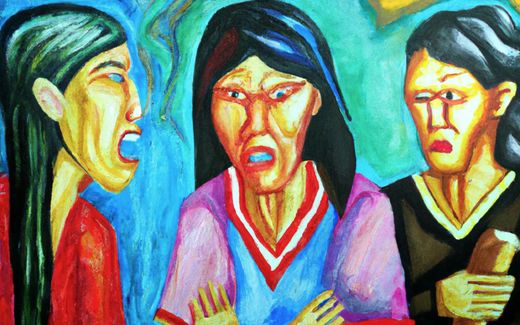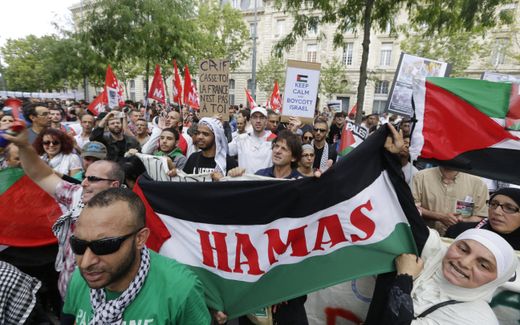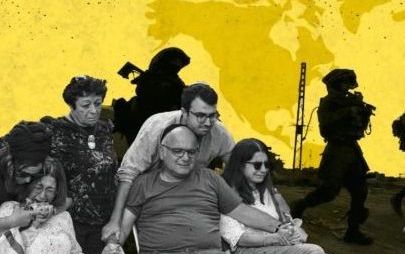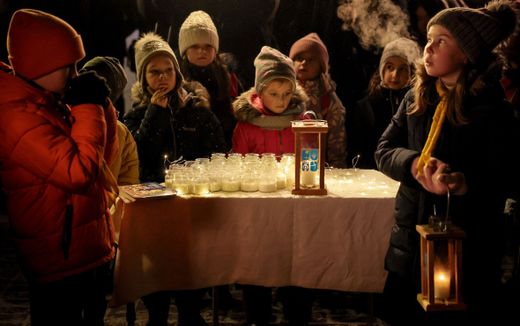Evert's comment: Polarisation about Israel and Gaza is hitting Christians hard
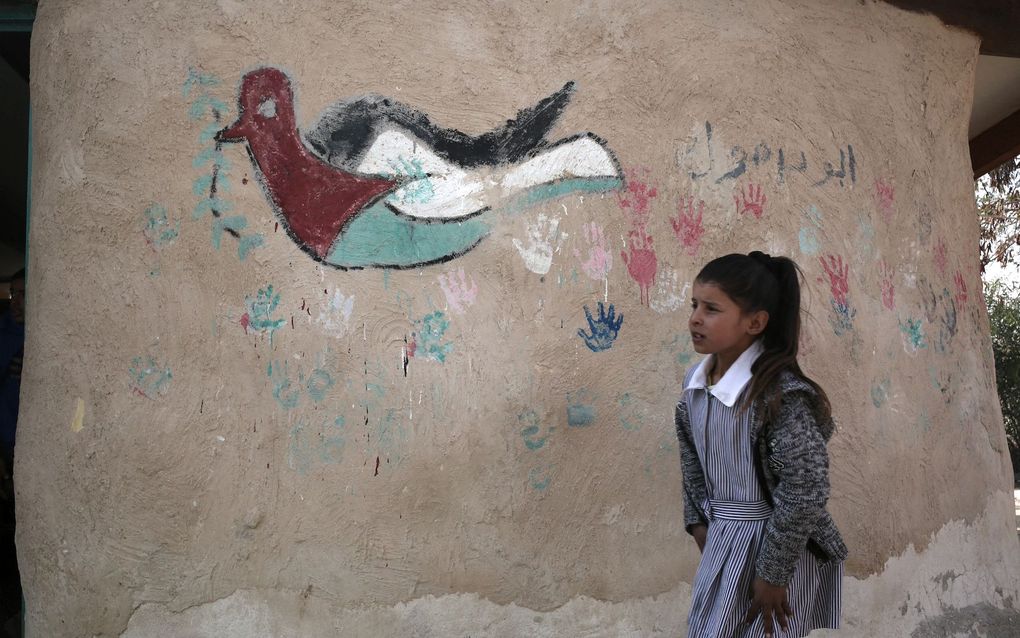
Security walls in Israel are full of murals that speak about "peace and justice". Photo AFP, Menahem Kahana
Opinion
Few things are so divisive to the minds of Europeans at the moment as the Israeli-Gaza conflict. Amidst that, Christians don’t seem to be a binding force. They are as polarised as the rest. Why is that?
The period I was born in my country was later known as the season of polarisation. It was left against right, and for and against nuclear missiles. If you were aiming for a better world, you could demonstrate somewhere every week.
The Christian environment I grew up in tried to protect itself somehow against the polarisation. Knowing that “our citizenship should be in heaven”, the leaders did not participate in all debates. As a teenager, I heard the principal of my Christian college saying that “it is not right to partake in a demonstration”. That did not fit in the pietistic, modest way of life. Nowadays, it would not surprise me to see the present management from that college at the yearly March for Life.
Things have changed – and that’s okay. But the consequence is that Christians have also become vulnerable to the polarisation. By being very outspoken in debates, they are no longer a binding force in the divided society.
In the past 100 days after October 7th, we have seen a growing gap between Christians who are pro-Israel and those who are pro-Palestine. And that is the same in society as a whole. I cannot remember such deep divisions as after the terrorist attacks on Israel.
In short, among Christians, you have two groups:
- On the one hand, there are Christians who identify with the state of Israel since this is the chosen nation from the Bible, from whom the Messiah was born. From that perspective, it is an honour to protect them.
- On the other hand, you have Christians who see Palestinians as the victims of oppression by colonialism. Jews and Americans are both seen as colonialists. But the Biblical calling is to protect the weak against the oppressor.
For the first group, it is pretty self-evident to protect the state of Israel at all times since the prophet said that “who touches you [the people of Israel] touches the apple of God’s eye” (Zechariah 2,8). It could be said that the Christian church takes the place of Israel as the bearer of God’s covenant in the present dispensation. But the people of Israel still have a particular place. It is the root of the olive tree in which the gentiles are planted (Romans 11,17). In other words, the old Israel still exists and is even essential for the Christian church.
But after 1948, a new question arose: is the state of Israel a continuation of the Old Testament Israel? Some evangelicals say yes. They see a straight line from King David to the Knesset. The consequences of this can be quite far-reaching. For instance, what land belongs to Israel? And are all the neighbours to be seen as “enemies of God’s people”?
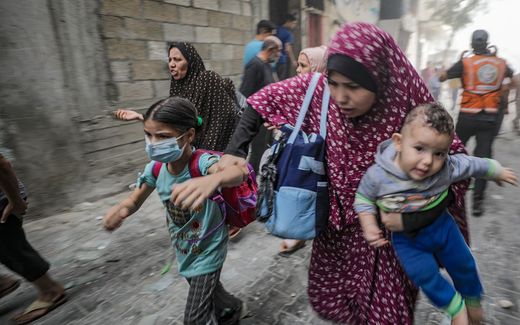
Of the second group, you could say that they continue “classic left” thinking. A few weeks ago, I found a book in a charity shop called “Justice and Only Justice: A Palestinian Theology of Liberation”, published in 1989 by the well-known theologian Naim Ateek.
The theology of liberation is the most apparent Christian pronunciation of Marxist revolutionary theory. It has been used during the Cold War. But I still read the same language from South Africa now.

First, let’s listen to the general secretary of the Evangelical Alliance of South Africa (TEASA), Moss Ntlha. To Protestante Digital he explains why he supports his government’s charge of genocide against Israel at the International Court of Justice (ICJ). Israel’s policy against the Palestinians is comparable with apartheid in South Africa, he argues. The Christian Zionism that justifies an occupation of the whole land between the Jordan and the Mediterranean Sea is nothing less than colonialism. Most evangelicals in South Africa abstain from this “godless racism”, Ntlha says.
Another South African, secretary general of the World Council of Churches, Dr Jerry Pillay, supports this view. Late December, he called for a stop to the “brutal violence” from Israel against the Palestinians.
A few days ago, the American Palestinian Omar Suleyman explained in a column in Religion News that Nelson Mandela once said his freedom was not complete without the “freedom of the Palestinians”. In other words, it is logical for those who fought against apartheid in the past to raise their voice against the Israeli “genocide” now.
These voices do not only come from the non-Western world. In 2021, there was a big debate in the Church of Sweden whether it was appropriate to call Israel an “apartheid state”, as CNE reported then. The same debate arose in the World Council of Churches in 2022.

My impression is that both groups feel threatened by each other. Christians are people of truth. Of course, that’s Biblical. But many times, if you are convinced of “your” truth, it is difficult to enter into dialogue with others.
But still, I have the conviction that Christians should be connectors rather than polarisers. And the first to reach out to are our own brothers and sisters.
To bring the groups together, I have three suggestions to reflect upon:
- Of course, Christians stand for the weak and oppressed. They are in Israel as well as in the Gaza Strip. Let churches start to pray in public for the vulnerable people on both sides of the border. For the hostages and their families, for the mothers of Gaza. And let churches distance themselves from political acts, as in the ICJ court case about genocide, because the only effect of this is bringing damage to the reputation of a state that is trying to defend itself.
- On the other hand, Christians should understand that the State of Israel is only an earthly house for a special people. Few nations from the Antiquity still exist, but the Jews do. And yes, they have a special place in God’s history and His future (look at Romans 11), but that does not make the earthly home any holier than other residences. This state has the same rights and obligations as others. Israeli laws are the same laws as anywhere else, and its leaders are as ordinary as others.
- In the end, all of us have to bow before certain facts. The most practical one is that these people are in the Middle East and will remain there. The Jews won’t leave since they have come to Israel to find peace and security. But the Palestinians won’t go either since they have lived there all the time. The only way forward is to accept each other as neighbours. Perhaps not friends or brothers. But neighbours. Good neighbours, hopefully.
Related Articles


